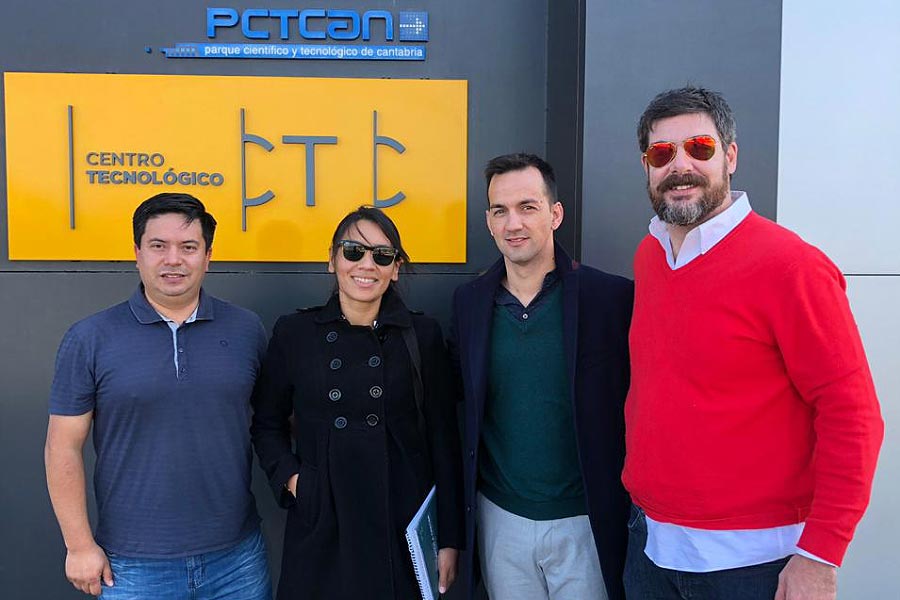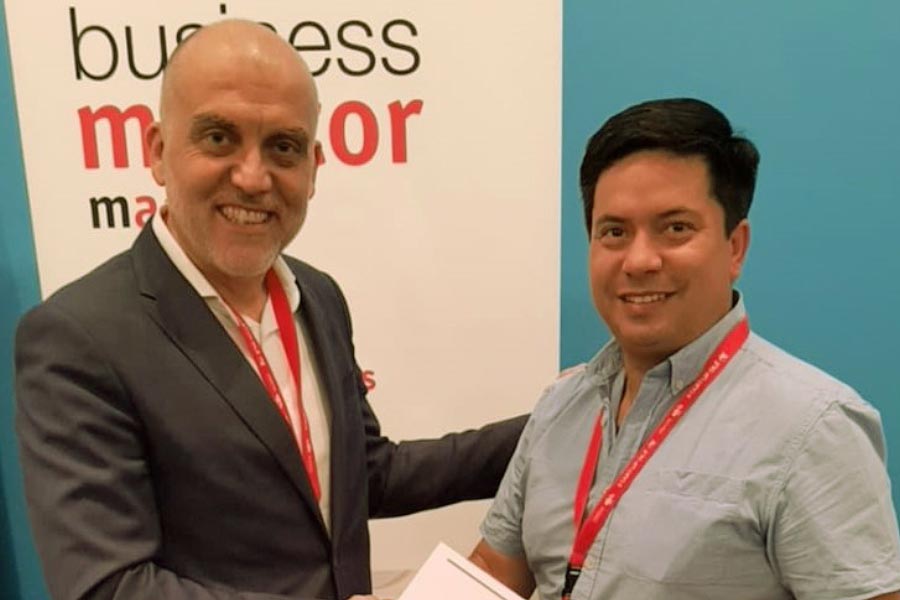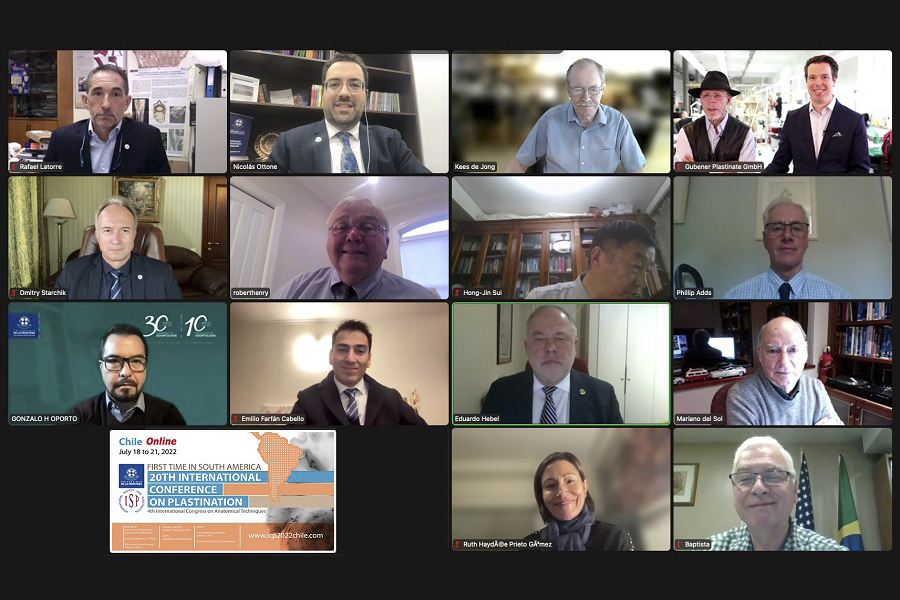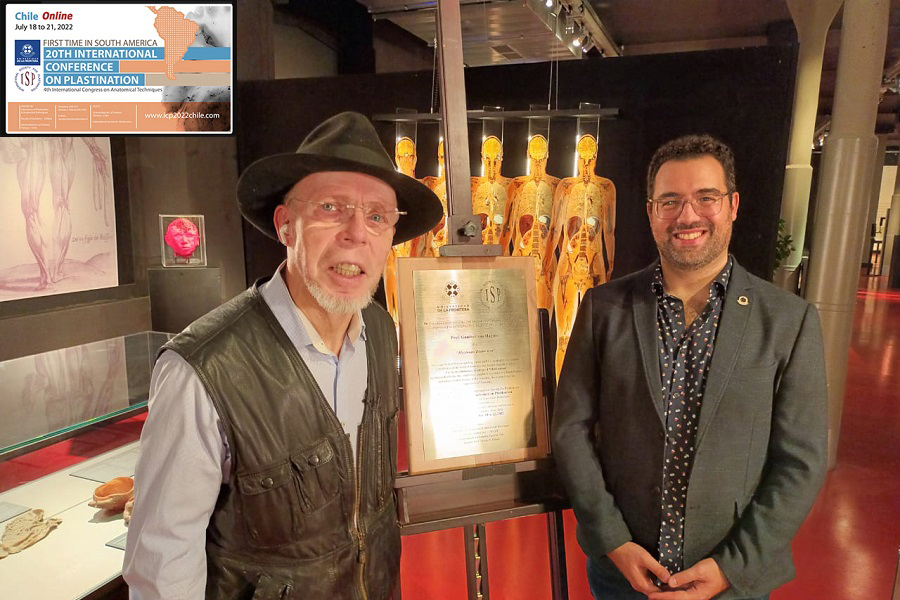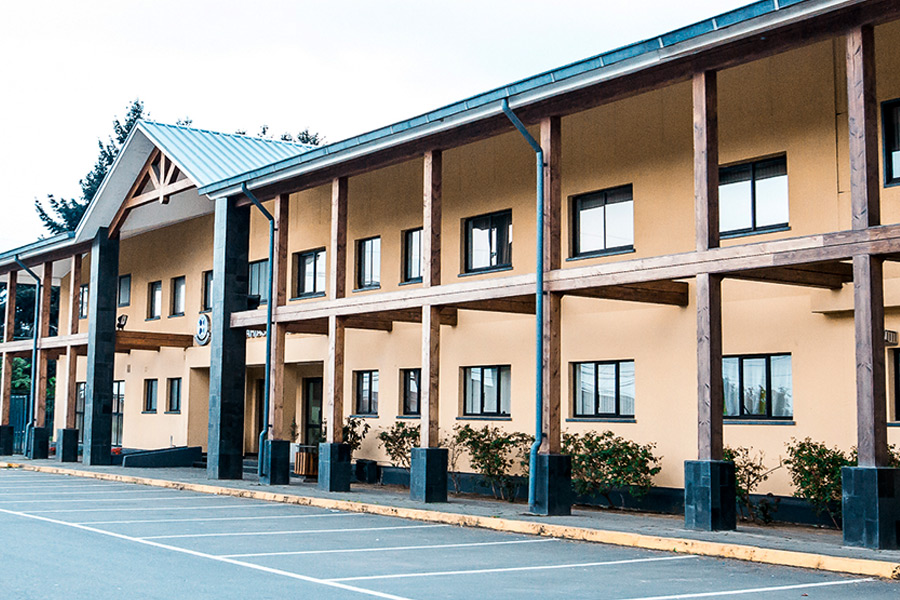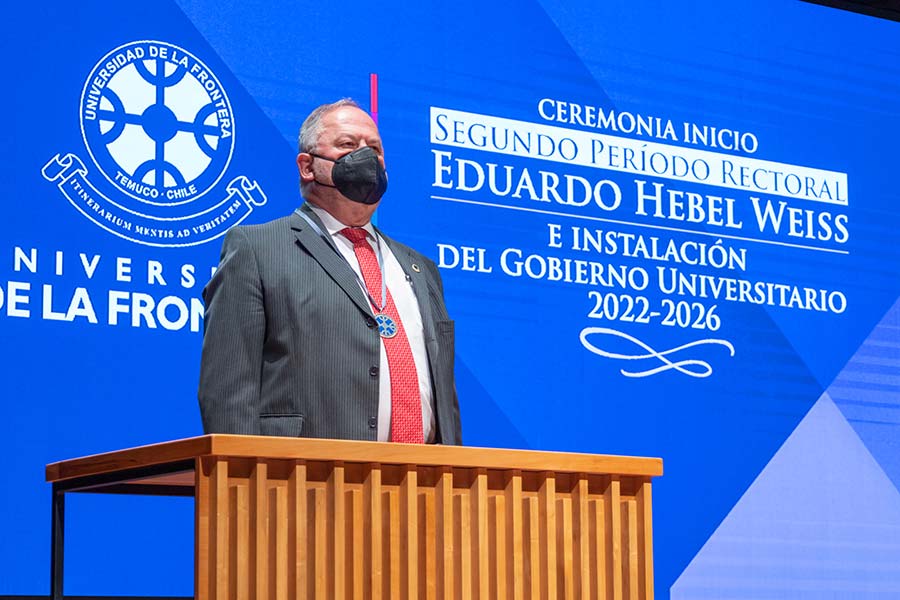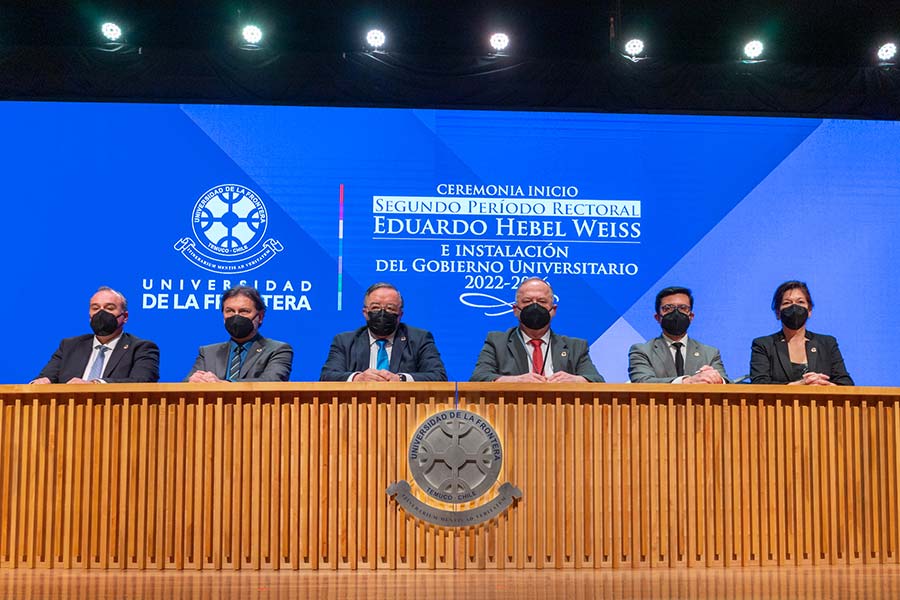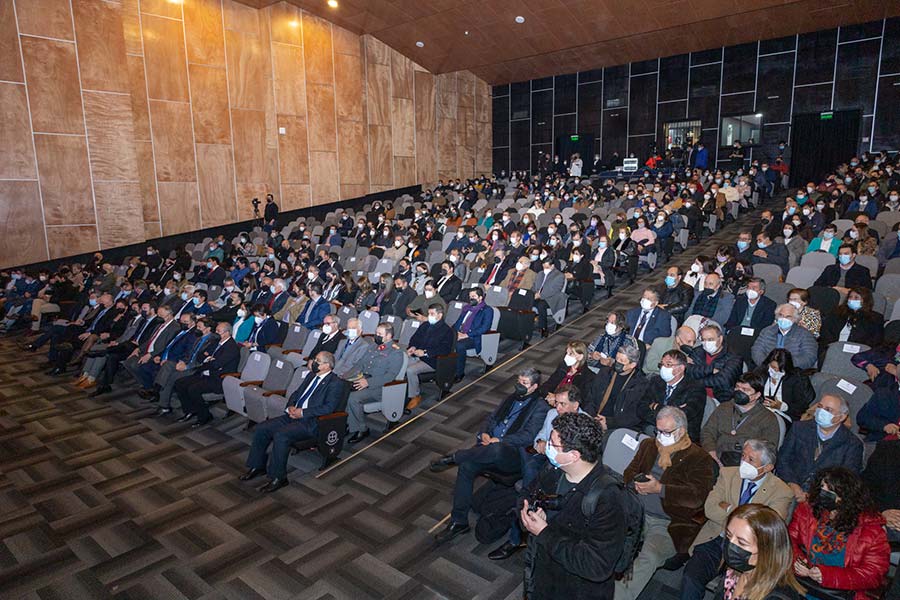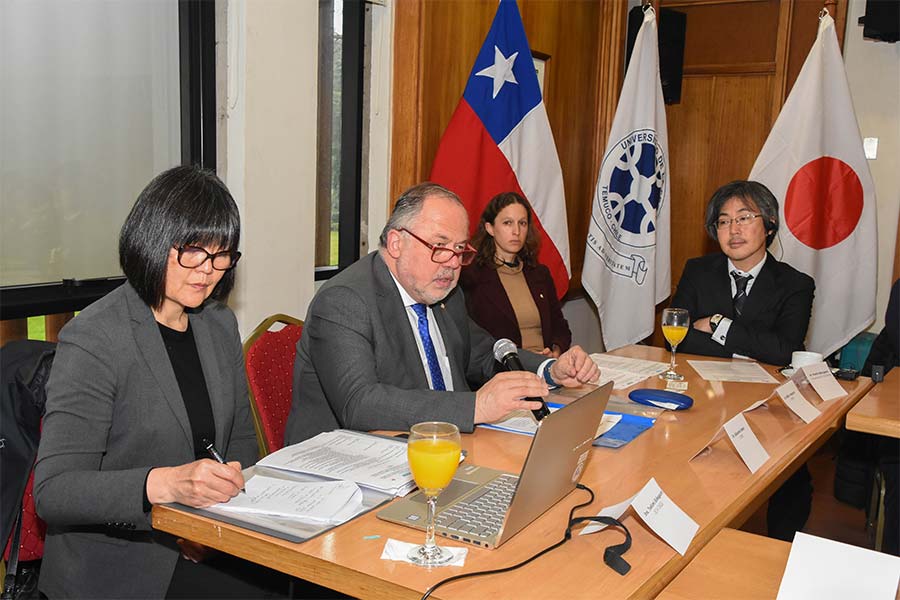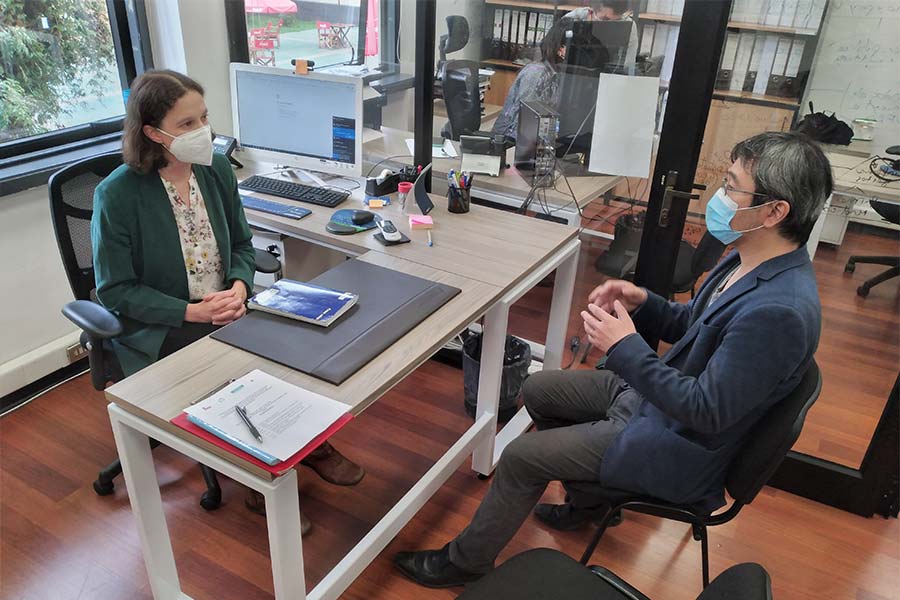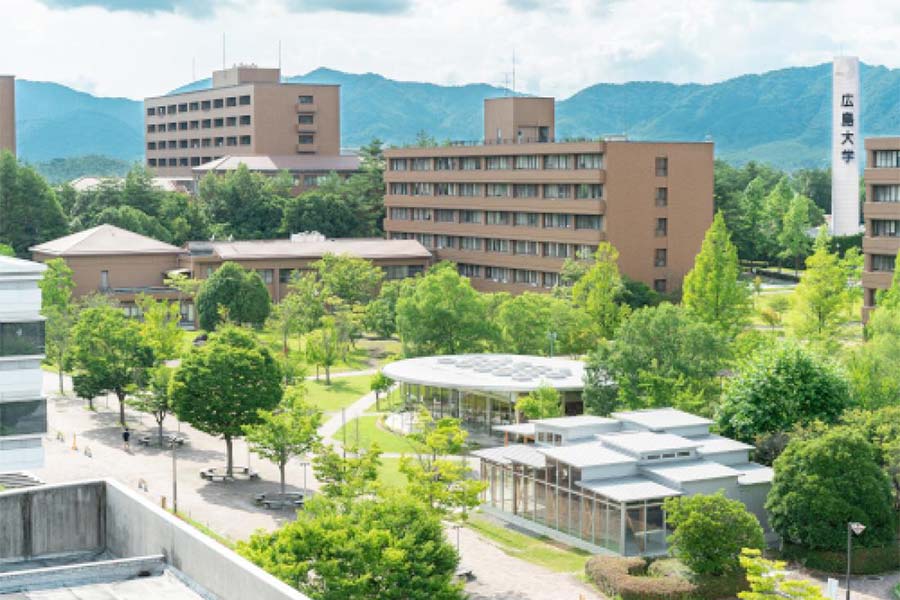|
The business incubator of UFRO will participate at Startup Olé in Salamanca, Spain, where its incubated businesses will be able to establish new partnerships, attend business rounds, conferences and exclusive matchmaking activities with start-ups, scale-ups and key players of the international scenario, among other activities that directly benefit them. |
IncubatecUFRO, the business incubator of the Universidad de La Frontera (UFRO), will participate at Startup Olé Salamanca in Spain, from Monday, September 5, to Wednesday, September 7. It is Europe’s most important event in 2022 that will present international entrepreneurship and innovation and that Chile already collaborates with for several years. Cristian Campomanes Gutiérrez, the CEO of IncubatecUFRO, and Mario Núñez Arancibia, the representative for the Los Lagos Region in Chile, coordinate national start-ups that want to join and participate in the different categories of Startup Olé Salamanca, which allow them to establish strategic alliances with partners who are already familiar with the trajectory of the business incubator. “We were anxiously waiting for the return of Startup Olé Salamanca, one of the most important entrepreneurial platforms in the world, which we are joining as KeyPlayers, presenting technological start-ups that work with IncubatecUFRO, in order to establish successful partnerships that will expand the markets of our entrepreneurs towards Europe,” Cristian Campomanes explained. ACTIVITIES The business incubator will participate in different categories at Startup Olé Salamanca, such as the Reverse Pitch, where Cristian Campomanes, the CEO of IncubatecUFRO, will participate, or the Business Accelerator Roundtable, in which Mario Núñez, the representative for the Los Lagos Region in Chile, will participate. “We will participate in different categories with IncubatecUFRO, and we particularly stand out in the Reverse Pitch, where we will present what we do, our fields of work and the advantages to work with us. This opportunity will allow expanding the possibility to reach potential clients that will be present at this important event, focusing on Europe and Latin America. On the other hand, we will participate in the Business Accelerator Roundtable, together with other start-ups, where we can share experiences, analyze the global panorama as partners, and, of course, make our offer known,” Campomanes added. PARTICIPATING START-UPS IncubatecUFRO will have a stand at Startup Olé Salamanca to promote its work and connect with companies that are in the stage of consolidation or scaling, to generate spaces for networking. “We will participate with companies from the aquaculture industry at Startup Olé Salamanca. One of them is Aquadata SpA, a company that offers technological solutions and consultancy services for the market, in the fields of prophylaxis and treatment of diseases; and the other one is Fishcare, a company dedicated to the transport of live fish in trucks with a bigger load capacity and incorporated technology that prioritizes the well-being and safety of the smolts,” the CEO of the business incubator pointed out. The businesses that participate with IncubatecUFRO will have the chance to network in a relaxed atmosphere, to attend different talks and meetings with investors and corporations, to acquire knowledge in networking tools, to participate in pitch competitions, and to engage in activities that could be beneficial to their interests. It is worth mentioning that the start-ups that participate with IncubatecUFRO have a 50% discount on the event fee and access to discounted flights with the airline Iberia. For more information about the event, go to https://startupole.eu/ or contact This email address is being protected from spambots. You need JavaScript enabled to view it. for more information about the participating start-ups and the work of IncubatecUFRO.
Written by: Abelardo Silva García |
|
The 20th International Conference on Plastination and 4th International Congress on Anatomical Techniques, organized in South America for the first time by the Universidad de La Frontera (UFRO) and the International Society for Plastination (ISP), took place online. |
Outstanding speakers came together at the scientific event, where they addressed issues related to the plastination fundamentals, education, clinical application and research, as well as classical anatomical techniques and human donation. One of the participants at the inauguration of the conference was the renowned inventor of plastination, Dr. Gunther von Hagens, who received a recognition from the Universidad de La Frontera (UFRO) and the International Society for Plastination (ISP) for his outstanding career and contribution to the field of anatomy and morphological sciences and for the creation of this revolutionary technique. The official award ceremony took place in Germany, before the congress, in presence of Dr. Nicolás Ottone, the director of the Laboratory of Plastination and Anatomical Techniques of UFRO and president of the Congress, who awarded Dr. Gunther von Hagens with this recognition. “We were able to witness two great moments at this event. One of them was the inauguration of the conference, with the presence of Prof. Dr. Gunther von Hagens, who made possible the first International Plastination Conference in Texas (USA), in 1982. And the second one was the transmission of his recognition for the creation of plastination, a technique that has revolutionized teaching and research in anatomy, as well as the way of showing society the wonder and perfection of the human and animal body. I went to Germany to hand this recognition over to Dr. von Hagens in person, on behalf of the Universidad de La Frontera and the International Society for Plastination,” Dr. Nicolás Ottone said. Plastination, he added, “was a great revolution in the field of morphology, because it allows preserving the samples forever and also solves the problem of the availability of bodies for teaching, studies and research in morphology. That is also why we always encourage and promote the donation of bodies to universities. This technique solves major problems and makes it possible to generate unique pieces in terms of the quality of dissection and the conservation we can obtain”. This year, the speakers and participants came from different universities in the United States, China, Germany, Turkey, New Zealand, Russia, Brazil, Chile, Spain, Peru, Costa Rica and Mexico. “More than 100 participants from 43 different countries on all continents attended the conference on plastination, what reflects the internationalization of the technique. I would like to stress the great participation of academics and students from South America, and from our faculty, especially in the 23 oral presentations. That confirms the great work we develop at UFRO, regarding the dissemination of plastination through our plastination workshops, our certification course in anatomical techniques and our presence in the different anatomy congresses. Our objective is to continue with this development and the application of plastination, as well as with diverse other anatomical techniques in all universities,” Dr. Ottone pointed out. Written by: Soledad Millapan Sandoval |
|
After completing the participatory process, the Faculty of Agricultural Sciences and Environment changes its name. |
After a deep reflection on the work of the Faculty of Agricultural and Forestry Sciences of the Universidad de La Frontera (UFRO) and a participatory work process with all faculty members, teachers and students, the university administration approved the renewal of the name to Faculty of Agricultural Sciences and Environment. With this new name, the faculty seeks to better represent and promote the current training, research and outreach activities within the university community. The renewal process began in 2020, when the students of the faculty’s Student Center presented a petition to update the name to one that represents the expanded diversity of the fields and topics they are developing, while also taking into account the challenges of the future. With the aim of evaluating the pertinence of the petition and preparing an appropriate proposal, the Faculty Council decided to create a commission, which consisted of the dean, Dr. Adison Altamirano; the representatives of the academic departments, Dr. Juan Carlos García, Dr. Ramón Rebolledo and Dr. Ricardo González; the representative of the administrative staff, Sergio Sáez; and Roberto Brito, a student of the program in Engineering in Natural Resources. “We are very pleased with this important change. The renewal is a milestone and the result of a participatory work with our entire community. Over the years, our faculty made a lot of progress in the fields of research, undergraduate and graduate studies, and ventured into new topics and fields of knowledge,” commented Dr. Adison Altamirano. According to him, the new name truly represents the work of the faculty, including the new emerging fields and the progress and growth they already achieved and will achieve in the future. PARTICIPATORY WORK AND AGREEMENT The committee agreed that the new name should represent all dimensions that the faculty addresses in undergraduate and graduate education, research and outreach. The analysis of the petition showed an important development and expansion regarding the fields of work related to the environment, ecology, production compatibility and the preservation of natural resources. “This change is important because the faculty significantly evolved. The new name describes our experiences and a lot of what we are doing. We can identify with it and I think that it properly represents us,” said Fresia Cantero, the staff representative of the Faculty Council. The director of Outreach and Community Engagement of the faculty, Claudia Bassaber, is also pleased with the new name, since she finds it more comprehensive. “It will allow us to strengthen the position and projection of the faculty, favor the interaction and cooperation, lead to greater opportunities for the development of joint activities in the agricultural, environmental and biotechnological fields, and contribute to the sustainable development of the region and the country,” she explained. Roberto Brito, the representative of the faculty’s Student Center, who actively participated in the commission, highlighted the result of the proposal and the fact that the students were the ones who proposed the change of name. “Although it was a long process with several stages, it was well received and drew the attention to the innovative and pertinent nature of the request. Another fact that is worth mentioning is the participatory process, which considered the opinion and vote of everybody of the faculty,” he pointed out. Written by: Valentina Duarte Sánchez |
|
Dr. Eduardo Hebel was reelected on June third and takes office together with Renato Hunter Alarcón, the Vice-rector for Academic Affairs; Pamela Ibarra Palma, the Vice-rector for Undergraduate Affairs; Rodrigo Navia Diez, the Vice-rector for Research and Graduate Studies; and Jorge Petit-Breuilh Sepúlveda, the Vice-rector for Administration and Finances. |
“Four years ago, I received the honor to lead this university, and today, it is my duty to renew my commitment to each and every one of our university community,” said Dr. Eduardo Hebel Weiss during the ceremony in which he officially took office for the second term (2022-2026) as the Rector of the Universidad de La Frontera (UFRO). The ceremony took place at the university’s Aula Magna, in presence of local and regional authorities, former rectors of UFRO, rectors of other universities, and the university community. At the ceremony, the General Secretary, Dr. Plinio Durán, read the Presidential Decree, which officially appoints Dr. Eduardo Hebel Weiss the new Rector of the Universidad de La Frontera, who then signed the record of assumption of office and received the official Medal of the Universidad de La Frontera, which for each term is lend to the new rector. In his speech, Dr. Eduardo Hebel reaffirmed his main guidelines that motivate him to lead the university and that are based on the value of the human being, the recognition of diversity, empathy, solidarity and the unrestricted respect for the people. “Because it is you, the people, who make UFRO unique, with your unparalleled richness, differences, styles and knowledge, pushing our university towards new directions and challenges,” he emphasized. Dr. Eduardo Hebel takes office together with Renato Hunter Alarcón, the Vice-rector for Academic Affairs; Pamela Ibarra Palma, the Vice-rector for Undergraduate Affairs; Rodrigo Navia Diez, the Vice-rector for Research and Graduate Studies; and Jorge Petit-Breuilh Sepúlveda, the Vice-rector for Administration and Finances. PILLARS During this term, from 2022 to 2026, the university authority will keep consolidating the university project initiated in 2018, for which the Rector emphasized the need of a collaborative work and constant dialogue between all members of the university community. In this respect, he pointed out: “In the immediate future, we have to take care of our permanent and urgent tasks, in order to continue as the nationally and internationally recognized university that we are. Therefore, it is important to keep in mind that together we established the transformation we need to ensure, with the desire to create a common UFRO.” He also stressed that he will “consolidate the institutional work, to build a university of excellence, recognized for our work in the fields that differentiate us, whether the professional training, advances in science, artistic creation or free thinking.” Therefore, it will be necessary to work cohesively on the six pillars he proposed: transversal commitments for a common UFRO; comprehensive training – training people from our region for the world; institutional management – from administration to integral management for a common UFRO; quality assurance; outreach – a university conscious of its environment; and research, creation and innovation – creation of science and knowledge with a local and global impact. INSTITUTIONAL ACCREDITATION The university is getting ready for one of the most important processes: the institutional accreditation process. Actually, the work has already begun, with the preparation of the self-evaluation process, the Institutional Development Project that should be implemented over the next ten years, the ethical commitment that implies the implementation of the new University Statutes, and the Educational Model that will be activated in 2023. HIGHER EDUCATION The Rector also expressed his commitment to the strengthening of the public, regional and state higher education. “As a public university, we are important agents for the improvement of the country and its people,” he emphasized. He also explained that these establishments seek to guarantee the right to education with a pluralistic, intercultural and inclusive seal, that they contribute to social mobility, address the needs of the territory and its inhabitants, highlight and support the vocation of young people who have different aspirations and train professionals in sensitive fields. At the end of his speech, Rector Dr. Eduardo Hebel emphasized that “UFRO is a university that, at its heart, continues to strengthen the academic and educational development of the people of our region and the country, addressing their needs and responding to the challenges and opportunities we have as a society,” inviting the university community to “keep working and dreaming the future of the Universidad de La Frontera together”.
Written and translated by: UFRO Communications Office
|
|
Shinji Kaneko, the Executive Vice President for Global Initiatives of Hiroshima University pointed out that Universidad de La Frontera is the first partner from Chile that joins their international network. |
The Universidad de La Frontera (UFRO) achieved a new international success by signing a Cooperation Agreement with Hiroshima University (HU), which is one of the most important universities in Japan. With regard to this partnership, Shinji Kaneko, the Executive Vice President for Global Initiatives of Hiroshima University, explained: “We hope that this partnership will contribute to a good communication and understanding between Chile and Japan, and UFRO and HU. At the same time, we want to increase our presence in South America, where a significant future development is expected, as well as to promote the excellence in research, internationalization and the reputation of both universities.” According to Dr. Lorena Vieli, the director of the International Affairs Office of UFRO, “although our countries have very different cultures, we have several challenges in common in the fields of professional training and scientific research. This agreement is a formalization of the already existing cooperation between both universities at the research level and will allow us to include other fields, too.” PARTNERSHIP The purpose of the recently signed agreement is to establish a cooperation in the fields of teaching, research, knowledge and culture dissemination, and to promote the academic and research exchange through projects of mutual interest. In particular, it will allow the exchange of researchers and teachers and joint research activities, as well as the participation in seminaries and academic meetings. ACTIVE PARTNER Hiroshima University was founded in 1949, in the first city in the world that was hit by an atomic bomb. Its mission is to contribute to the well-being of humanity, through the development of a democratic and peaceful society, based on the search for peace, the creation of new knowledge, the training of holistic human beings, the collaboration with the local, regional and international community, and continuous development. In this context, the Japanese university seeks an active collaboration with UFRO through this agreement that includes, among others, specific matters, advice regarding the development of academic projects, special programs, and innovation and knowledge transfer. BACKGROUNDS The relation between establishments in Chile and Japan started more than a decade ago, through the active cooperation between Dr. Milko Jorquera and Dr. Fumito Maruyama, who are both graduates of Osaka University. They initiated a science project between Chile and Japan in 2017, about monitoring and understanding the dynamics of harmful algal blooms, a common phenomenon at the Chilean coastline that affects the public health and aquaculture production. The Universidad de La Frontera participates as leading institution in a project that seeks to characterize the biological interactions that cause red tides, by studying its holobiome (holo = whole, biome = ecosystem). This is how Dr. Milko Jorquera, an academic of the Department of Chemical Sciences and Natural Resources at UFRO, who works together with the academics Dr. Fumito Maruyama and Dr. So Fujiyoshi, who both work at Hiroshima University (HU), describes it. The important partnership still exists, not only based on scientific collaboration, but also based on the support and coordination of graduate student exchange between UFRO and HU. NEW OPPORTUNITIES “The signing of this agreement allows us to formalize the partnership between both universities, and to keep expanding our cooperation networks to countries and continents that we do not have such an active cooperation with, yet. That helps us to be a university that is connected with the global challenges and that gives its community the possibility to life an enriching and unique international experience,” added María Paz Collío, who is in charge of international agreements and projects at UFRO.
Written and translated by: UFRO Communications Office
|





